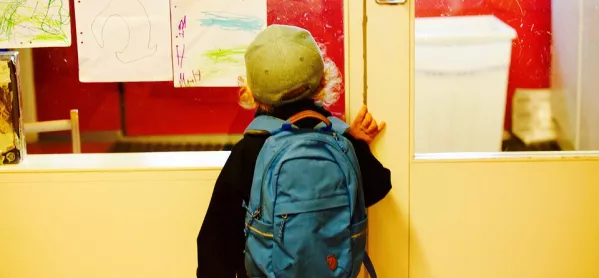Otto was from a disadvantaged family. He often turned up in dirty clothes and wore glasses that were rarely cleaned and rarely checked. He didn’t speak English as his first language, and what English he did have was poor and broken. He had difficulty with reading, writing and maths, and difficulty with friendships, too.
If there ever was a “target child”, he was it. He attended a range of intervention groups. In fact, he was in so many that he was hardly in class at all. It was difficult to get to know him because he just wasn’t there. He was in Year 6 so the race was on to catch him up.
One day, something rather wonderful happened to Otto. He got (along with his younger sister, a nice little thing, I used to teach her as well) a place at our breakfast club. The club used to move around the school - one year it was in my classroom and the children used to arrive for lessons and be tortured by the smell of toast - and that year it was in the Small Hall.
There, tucked in the corner, was the piano. And Otto got his hands on it.
Hidden talent
I used to hear him when I was rushing around getting ready for the day ahead, playing long, improvised pieces - some I recognised, some that must have been his own. He’d sit, absorbed in the music, a small, still figure at the edge of the whirlwind that is a school first thing in the morning. It was beautiful and uplifting.
We talked about it one day after school at a staff meeting. We were discussing the More Able. Someone mentioned Otto and the piano and, for a moment, we fell quiet.
Because, you see, we didn’t know. We didn’t know that hidden behind the SEN (special educational needs), the pupil premium and the EAL (English as an additional language), the dirty clothes and the friendship problems, was a musical talent, just waiting to be nurtured. He’d been so busy in all those interventions that no one had had a chance to know, to find out. We’d been so busy that the person who did the nurturing was himself.
Missed opportunity
Because, if they’re never in your music lesson, or your PE or art, drama or design and technology, how would any of us know if that child, the one whose levels we are struggling to raise, was good at music or dancing, running or drawing?
How would they gain those very things that the arts can teach?
The knowledge that with dedicated practice you can get better at things, the relationship with a specialist teacher and, perhaps most importantly, the knowledge and understanding of success - these things, so easily learned in the right context, would be lost to them, too.
And frankly, if they don’t develop the habit of participation in the cultural activities of their communities - the sorts of things that enrich all our lives, like music and dancing, sport and art - when they are young, then when will they?
Nancy Gedge is Tes SEND columnist, coordinator of the Ormerod Resource Base at the Marlborough School, Woodstock, and author of Inclusion for Primary Teachers




